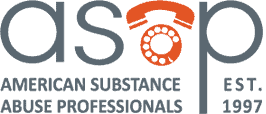By: Peter Callaghan
Jobs in transportation, public safety and those considered “safety sensitive” — think construction, manufacturing, others — still will be subject to THC testing requirements.
Employees who use recreational marijuana now that it is legal in Minnesota won some protections in House File 100. Pre-employment drug screening is restricted, and employers will need to update policies for when reasonable suspicion of impairment can lead to discipline or firing.
But employees can still get fired or disciplined for marijuana and hemp-derived product use or possession at work and employers can still require testing — pre-employment and post-accident — for a wide swath of job types.
In addition, testing and workplace policy won’t change much for people in transportation, public safety or in “safety sensitive positions,” defined as jobs where being impaired “would threaten the health or safety of any person.” Random testing is still allowed for workers in those safety sensitive positions as well as for professional athletes who are covered by testing rules.
“People ask, ‘I smoke. It’s legal. And now you’re telling me I can potentially lose my job because I was tested,’ ” said Lisa Kons, the traffic safety programs manager for the Minnesota Safety Council, who has conducted training sessions with 1,000 employers since the law passed. “It’s going to be really important for employers and employees to know what they are up against within the confines of their workplace.”
The 300-page bill is complicated, and figuring out how new provisions dovetail with existing law has kept employment lawyers busy since House File 100 was signed into law in May. Generally speaking, it depends on the type of job and whether federal laws still apply.
“The big question for employers broadly is what areas of their drug-testing policy have to change from before,” said Lauryn Schothorst, director of workplace management and policy for the Minnesota Chamber of Commerce. “There’s this swirl going around about these technicalities. And most employers are trying to figure out whether they test for THC at all anymore, is it necessary, is the presence of marijuana the issue or are you looking at behaviors?”
For employees, Schothorst fears there is an implication that with legalization there is a free pass to use cannabis the way they use alcohol.
“You want to make sure your employees know that what they do on their own time is mostly their own business, but there are still potential risks,” she said.
Burt Johnson is the general counsel for the North Central States Regional Council of Carpenters. He said the union is working with employers to understand the new law and apply it to their job sites.
“We have members who are concerned about whether recreational use is something they can engage in, and we have members who are concerned about their coworkers engaging in it and being under the influence when they are at work,” Johnson said. Safety of workers is at the top of mind, but there is also a desire to protect individual rights of members.
“We’re telling them to be careful and be cognizant that they need to continue to do what they’ve done in the past and make sure they’re not under the influence of alcohol and intoxicating substances at work,” Johnson said. “They know that.”
Rep. Zack Stephenson, the Coon Rapids DFLer who was the prime sponsor of the bill in the House, said he wanted to protect the right of people to use cannabis and hemp products but that the policy on workers and workplaces centered on safety.
“We need to make sure workplaces are safe places, especially in safety-sensitive positions, where people are doing things that are dangerous or others’ safety is at issue, such as children and vulnerable adults,” Stephenson said.
“It’s going to depend on the job and what they’re doing,” Stephenson said. “Obviously someone operating heavy equipment, that is a safety-sensitive position.”
Testing for seven ‘lucky’ job categories
So, now that cannabis is legal for those 21 and older to possess and use, who can be tested for THC and when? THC stands for Tetrahydrocannabinol and is the intoxicating component in marijuana and many hemp-derived edibles and beverages.
Minnesota’s new recreational marijuana law bans pre-employment testing for THC for many workers in the state. The rationale for the sponsors of House File 100 is that once cannabis is legal, having THC in your system is no longer evidence of illegal drug use and shouldn’t be grounds for rejecting a job applicant or firing a current employee.
State law already says employers can’t refuse to hire applicants — or discipline the workers they have — because they have “engaged in the use or enjoyment of lawful consumable products” if they are used off work premises and off work hours. While that section of law had included food, alcohol and tobacco, it now adds cannabis and hemp products.
But even that seemingly broad prohibition in the new law goes on to say that it doesn’t limit an employer’s ability to discipline or discharge employees for cannabis or hemp use, possession, impairment, sale or transfer during working hours, on work premises or while operating an employer’s vehicle, machinery or equipment. It also says that workers can be disciplined or fired “if a failure to do so would violate federal or state law or regulations or cause an employer to lose a monetary or licensing-related benefit under federal law or regulations.”
With that said, stricter standards and laws continue to apply to workers in what Kons terms “the Seven Lucky Positions.” Those are:
- Workers in “safety sensitive” jobs defined as those when impairment could threaten the health or safety of any person
- Police officers
- Firefighters
- Those in face-to-face care, training, education, supervision, counseling, consultation or medical assistance to children, vulnerable adults or medical, psychiatric or mental health patients
- Jobs requiring a commercial driver’s license or jobs covered by state and federal requirements for drug and alcohol testing of applicants or employees
- Jobs funded with federal grants
- Any job for which state or federal law requires testing
Transportation jobs remain covered by federal rules, which could not be altered by HF 100. Pre-employment testing, random testing and post-accident testing are mandatory under federal law for truck drivers, airline pilots, train engineers and tugboat captains.
“The short story is that for truck drivers with a commercial driver’s license, nothing changes,” said John Hausladen, the president of the Minnesota Trucking Association. “They couldn’t consume cannabis before, and they can’t do it now. Federal law still prohibits it, and if you are caught using it on a test you will be pulled out of the truck and probably lose your career.”
Substance abuse treatment is an option for those workers, though employers are not required to rehire and if they do, the driver is subject to random testing. “There is a path, but it is a challenging path,” Hausladen said.
Hemp-derived products, even those that don’t produce much of a high, can leave detectable THC in a person. Hausladen said drivers face a risk of “inadvertent consumption” that could get them in trouble. “We think that is lurking.”
Those laws apply not just to truck drivers but every U.S. Department of Transportation-tested position: airplane pilots, train engineers, tugboat captains, school bus drivers, charter bus drivers, Hausladen said. Crossing state lines is not a prerequisite for being subject to these standards. Other jobs in trucking could be covered under the safety-sensitive positions provisions, such as workers who load trucks, maintain them or repair them, he said.
For the other six categories, employers have the option to conduct pre-employment screening to search for THC but aren’t required to by state law. Kons said job applicants will know if a position subjects them to pre-employment testing. While some federally funded jobs do have that requirement, not all do, and she said the posting will likely say whether testing is required or not.
Defining ‘safety sensitive’
Safety sensitive jobs are only generally described in state law as those where impairment could threaten the safety of the worker or others. Kons said jobs in construction, landscaping, van and bus drivers, factory workers, refinery workers, private security staff and even chefs would be included in the definition. But employers are free to make the case that other jobs, as well as the people who supervise them, are safety sensitive.
“It does not mean that you can go out and make every job in your organization ‘safety sensitive,’” said Kons of the safety council. “What it does mean is that if you think you have an employee in a safety-sensitive position, you’re going to want to document why.”
Which jobs fit into that category is important because according to the net result of the new law and remaining existing law, safety-sensitive positions — and those pro athletes subject to drug testing regimes — can be subject to random testing. While police and firefighters have their own reference among the Lucky Seven, Kons said they would likely fall into the safety-sensitive job category as well.
Probably not included? Lawyers, accountants, insurance agents, clerks, servers and bartenders, call center workers, musicians and journalists.
Johnson of the Carpenters said he doesn’t expect worklife to change much for union carpenters because they are in safety-sensitive jobs and have long been subject to testing.
“For trades people who are currently employed, we’re not anticipating major changes in the way employers are conducting testing. But we are working with employers now to strike the right balance between worker safety — which is of paramount concern — and the rights of the individuals,” Johnson said. He added, however, that non-union job sites with temporary workers that might lack the culture of safety is where he thinks more problems can occur with cannabis.
Many jobs could fit under what the law describes as those having face-to-face care: training, education, supervision, counseling, consultation or medical assistance to children, vulnerable adults or medical, psychiatric or mental health patients.
School teachers could easily fall into that category as could most health care positions. Again, employers can make the case for inclusion, and those provisions would be a subject for collective bargaining.
How to define impairment
What does the presence of THC in urine or blood say about impairment? Alcohol in the bloodstream at certain concentrations is legally defined as impaired — for example, 0.08% is the legal definition for driving while intoxicated. No such standard exists for THC, which metabolizes differently in different people and can be present long after intoxicating effects have ended.
Detection of THC depends on the type of test — urine or blood or hair sample. It also depends on how frequently the person uses marijuana and even how much body fat the person has.
“Linking impairment is more difficult with marijuana and that’s one of the topics we have to address,” Johnson said. “It’s tougher and more nuanced with marijuana than it is with alcohol. Certainly the impairment question is a factor. Will the new law lead to greater use and therefore lead to the potential for people to test positive yet not be impaired? That’s a possibility.”
So how do employers know if a worker is impaired? The only real way is through blood or urine tests. There are restrictions on that testing and a requirement that employers use third-party labs and conduct confirmation tests before discipline can occur. But, again, there are lots of exceptions.
“An employer must not request or require a job applicant to undergo cannabis testing solely for the purpose of determining the presence or absence of cannabis as a condition of employment unless otherwise required by state or federal law,” the law states.
Pre-employment testing continues to be allowed for still-illegal drugs. But the same section of the new law prohibits employers from refusing to hire an applicant solely because the employee submits to a cannabis, drug or alcohol test and the tests positive for cannabis “unless otherwise required by state or federal law.”
The bill is very clear in protecting an employer’s right to keep cannabis out of the workplace and to enforce policies against use and possession on their premises. And there is specific authority to use testing when there is “reasonable suspicion” of impairment.
‘Marijuana is no longer a drug’
It says employers can discipline and discharge workers using or possessing cannabis or hemp-derived products while an employee is working, on the employer’s premises or operating an employer’s vehicles, machinery or equipment. Kons of the safety council said nearly all workplace policy manuals and union contracts might need amendment, because if they simply restrict “drug and alcohol” use, they might not include cannabis and hemp.
“Marijuana is no longer a drug. Cannabis is no longer a drug. You must amend your policy accordingly,” Kons said. The Minnesota Chamber is advising its members to look at the employee manual and make sure the expectations are clear and the procedures are defensible.
“You have to be consistent, not ‘arbitrary and capricious,’ so that your employees know in advance what is the basis for testing under a reasonable suspicion policy and then carrying out your policy,” Schothorst said.
The language in the law leaves room for interpretation, and perhaps for future litigation. It describes workplace impairment as when a worker “does not possess that clearness of intellect and control of self that the employee otherwise would have.”
Said Kons: “How do you reasonably suspect this is marijuana? Can you document that this has happened more than once? Are there reasons for you to 100% think it is marijuana or could be something else? Even smell at this point is going to be hard for reasonable suspicion because what if they were with someone else?”
But jobs that don’t fall among the Lucky Seven are in a gray area. Employers can act on “reasonable suspicion” of impairment at work and document behavior that suggests impairment. But Kons said she doesn’t think the law allows employers to require those employees to submit to testing for THC.
“You can test them, but you cannot test them for cannabis unless they are in one of those Lucky Seven positions,” Kons said.
The one testing exception that applies to all workers is if an employee injures themselves or others on the job or was involved in a work-related accident.
“When you wrap your arms around all of this, it’s all about safety and health and the environment in which you work,” Kons said.
Check the employee handbook
Even though it is in the statute, Schothorst said the Chamber recommends that employers have written policies against use, possession, sale and transfer of cannabis or hemp products at work or in work vehicles. And they need to spell out when testing might come into play.
“Broadly, pre-employment testing is going by the wayside,” Schothorst said. “There might be specific jobs or positions that still make sense to do some form of pre-employment testing. But broadly speaking, unless there are some specific reasons for doing so, the sense we get is that most employers are moving in a different direction.”
Thomas Gallagher is a defense attorney who has been a longtime advocate for legalization of marijuana. He urged employers to not overreach.
“As a matter of public policy, I argue that employers should not be invading the privacy of employees as a general matter,” he wrote in response to questions about how the law impacts employees. “Any exceptions should be reserved for grave circumstances with overwhelming justification. I see this as a civil liberties issue.
“What has changed recently is use of marijuana is now presumptively legal, like alcohol use,” Gallagher wrote. “Employers should never have been policing illegal drug use when it has no relation to the job, but some did and their excuse was ‘it’s illegal.’ Now they can no longer say that.”
Callaghan (2023). Article retrieved from MinnPost.





